MercoPress. South Atlantic News Agency
Tag: Marine pollution
-
Wednesday, June 29th 2022 - 10:07 UTC
United Nations “Ocean emergency” conference opens in Lisbon
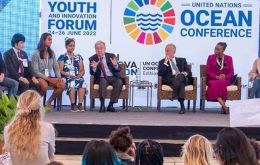
With climate change, biodiversity loss and pollution exacting a devastating toll on the world’s ocean — critical to food security, economic growth, and the environment — the 2022 UN Ocean Conference opened in Lisbon, Portugal with a call for a new chapter of ocean action driven by science, technology and innovation.
-
Friday, February 5th 2021 - 09:10 UTC
“Turn off the soundscape” plead marine animals, Science journal reports

A cacophony of industrial noise is disrupting marine animals' ability to mate, feed, and even evade predators, scientists warn. With rumbling ships, hammering oil drills, and booming seismic survey blasts, humans have drastically altered the underwater soundscape.
-
Tuesday, October 27th 2020 - 08:49 UTC
The Atlantic ocean first 200 meters water layer holds 12 to 21 million tons of micro plastic waste

Researchers have made micro plastic measurements in the Atlantic Ocean for the first time. In the first 200 meters of the water layer, they estimate that there are approximately 12 to 21 million tons of waste.
-
Friday, October 2nd 2020 - 09:00 UTC
IAATO Antarctic fellowship for a scientist to research micro-plastic in aquatic systems

The International Association of Antarctica Tour Operators (IAATO) and the Council of Managers of National Antarctic Programs (COMNAP), have announced one of the recipients of the Antarctic Fellowship 2020.
-
Tuesday, May 14th 2019 - 09:11 UTC
Record diver detects plastic bag at the deepest place on Earth
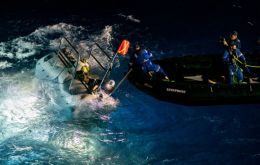
On the deepest dive ever made by a human inside a submarine, a Texas investor found something he could have found in the gutter of nearly any street in the world: trash.
-
Saturday, March 30th 2019 - 08:04 UTC
EU bans use of plastic cutlery and cottons buds by 2021
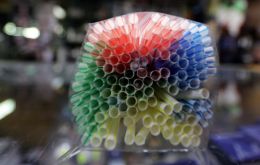
Single-use plastic items such as straws, forks and knives as well as cotton buds will be banned in the European Union by 2021 following a vote by EU lawmakers last Wednesday as the bloc pushes manufacturers to step up their recycling efforts.
-
Thursday, November 29th 2018 - 07:31 UTC
Falklands' waters micro-plastics pollution comparable to areas of UK
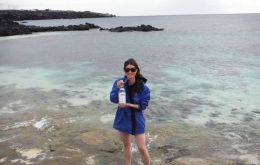
The first study to investigate micro-plastics around Ascension Island and the Falkland Islands – two of the most remote locations in the South Atlantic Ocean – has found levels of contamination comparable with the waters around the UK.
-
Wednesday, November 14th 2018 - 08:09 UTC
First global multi-agency operation against marine pollution crimes
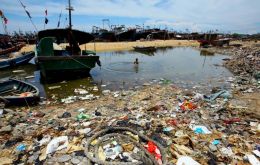
An international law enforcement operation against maritime pollution has revealed hundreds of violations and exposed serious cases of contamination worldwide. Codenamed 30 Days at Sea, the month-long (1 to 31 October) operation saw some 276 law enforcement and environmental agencies across 58 countries detect over 500 offences, including illegal discharges of oil and garbage from vessels, ship-breaking, breaches of ship emissions regulations, and pollution on rivers and land-based runoff to the sea.
-
Monday, October 15th 2018 - 08:29 UTC
East Falkland, among most plastic contaminated shores in South Atlantic Islands
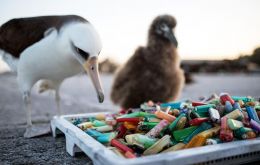
The amount of plastic washing up onto the shores of remote South Atlantic islands is ten times greater than it was a decade ago, according to new research published in the journal Current Biology. Scientists investigating plastics in seas surrounding the remote British Overseas Territories, including East Falkland, discovered they are invading these unique biologically-rich regions. This includes areas that are established or proposed Marine Protected Areas (MPAs).
-
Monday, April 16th 2018 - 08:40 UTC
UK earmarks £61.4 million to fight the rising tide of plastic pollution in oceans
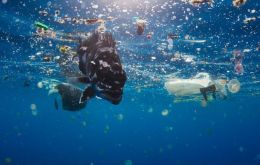
The UK Government has earmarked a £61.4 million war chest to fight the rising tide of plastic pollution in the world’s oceans. Theresa May announced the fund ahead of the Commonwealth Heads of Government meeting in London this week.
